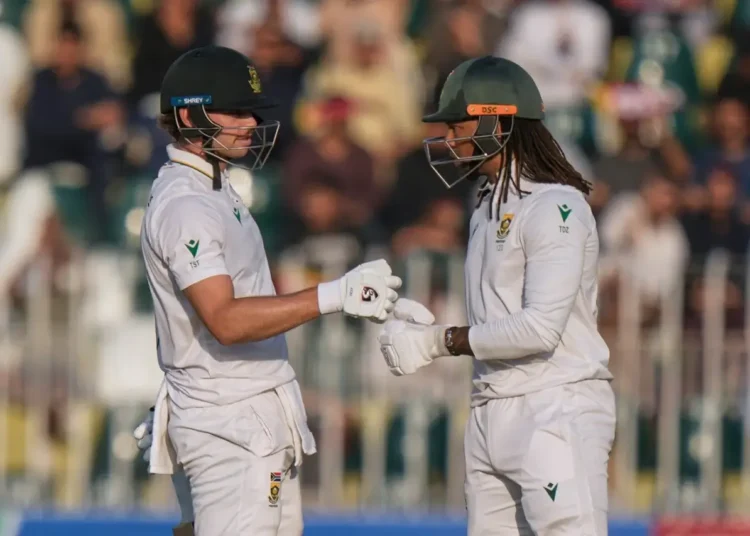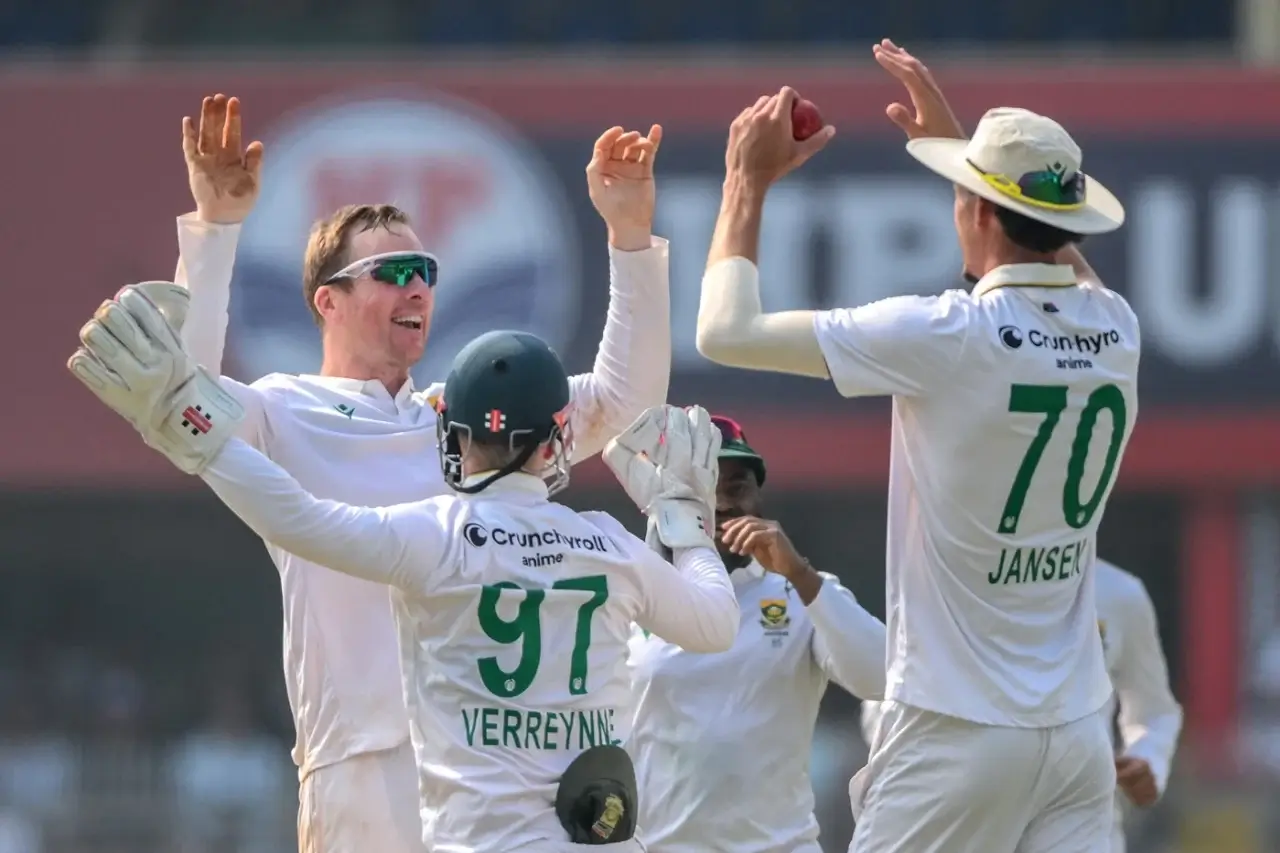South Africa arrived in India with ambition but little expectation of dominance. Coach Shukri Conrad had urged his players to “dream boldly,” yet even those dreams never included a 2-0 sweep. That became reality in Guwahati as South Africa sealed India’s heaviest home defeat. Bavuma admitted he never predicted this margin. He said past pains sharpened their drive. South Africa had lived through heavy defeats in India for years.
That history fuelled their hunger. Bavuma described the win as an achievement carved through belief and resilience. He said the group has created memories that will define their era. Their success marks a turning point after decades of disappointment in India.
The last time South Africa won a Test series in India was 1999. Bavuma was still a child. Marco Jansen and Tristan Stubbs had not even been born. The squad carried either scars or none at all. That mix created a clear-minded group with no fear of failure. As current mace holders, they also carried responsibility.
Under Conrad, South Africa has not lost a series with their full-strength unit. Bavuma extended his record as the most successful Test captain before suffering his first loss. Against an Indian side in transition, they sensed opportunity. They grabbed it completely.
Shadow Tours and Smart Scheduling Powered the Upset
South Africa’s success was not luck, but rather a result of layered preparation. Their FTP delivered perfect timing. The team toured Pakistan just before arriving in India. That tour gave the squad a real taste of subcontinental demands. Additionally, South Africa sent an A-team—which Bavuma joined—as an advance unit. The side played two four-day matches. The surfaces were benign, but the opposition included India’s frontline bowlers. South Africa A chased 417 in the second match.
That chase lit a spark. Bavuma scored 59 and said it helped him match the squad’s energy. These shadow tours were part of a bigger plan to arrive with clarity. Bavuma said they refused to leave any detail unchecked. He said this mindset raised the intensity of their preparation.
Preparation Created Momentum Before the First Test
Bavuma missed the previous tours to Asia due to injuries. But Conrad always viewed him as their best batter and natural leader. Bavuma earned standing ovations in Kolkata and Guwahati. He has now grown into a complete captain. He said returning to the side felt easier because the group had raised standards and had to lift his own game to rejoin their level. That shift shows how much South Africa has evolved in the last two years.
South Africa’s Bowlers Expose India’s Transition With Ruthless Discipline
South Africa’s bowlers shaped the series with clarity and control across both Tests. Marco Jansen broke key partnerships with bounce and accuracy. Keshav Maharaj and Simon Harmer applied pressure for long spells. Their plans targeted India’s inexperienced middle order. South Africa stayed patient and waited for mistakes.
That discipline forced India into repeated collapses. Bavuma said their bowling group understood the value of small moments. They focused on repeating simple plans for long periods. India struggled to build stability under pressure.
Harmer and Maharaj Outplayed India in Familiar Conditions
Harmer used angles and drift to create doubt. Maharaj controlled the tempo with a sharp turn. Both operated with clear roles. They challenged batters to defend for long phases. India rarely found scoring options. South Africa’s spinners changed the narrative in India’s home conditions.
Their consistency turned sessions into decisive swings. Bavuma credited their intelligence and preparation. He said their discipline turned tight contests into dominant wins like India against Bangladesh.
Bavuma’s Leadership Evolves Through Shared Responsibility
Two and a half years into his captaincy, Bavuma has mastered balance. He said he learned not to shoulder every decision alone. South Africa now operates through a shared leadership model. Bavuma sets the direction. Senior voices help refine it. He regularly consults Keshav Maharaj, Aiden Markram and Kagiso Rabada.
He said these players help him maintain clarity in fast-moving sessions. This model has eased pressure and sharpened South Africa’s tactics. It has also strengthened trust across the dressing room.
Separating the Captain From the Batter
Bavuma said one of his biggest lessons is the ability to separate roles. He must be selected as a batter, not only as a captain and said teammates follow actions more than words. He takes responsibility to contribute visibly with the bat.
Leadership begins with performance. Bavuma’s assurance has grown with every series. His command of the team reflects a deep understanding of himself and his role.
Conclusion
South Africa’s 2-0 triumph in India is one of their greatest Test achievements in the modern era. It is the result of layered planning, fearless leadership and strategic preparation. Bavuma has turned a challenge into an identity. Conrad has built clarity and purpose into the side.
Their approach has reshaped South Africa’s standing in world cricket. And after twenty-five long years, they finally walked out of India not only victorious, but dominant.




